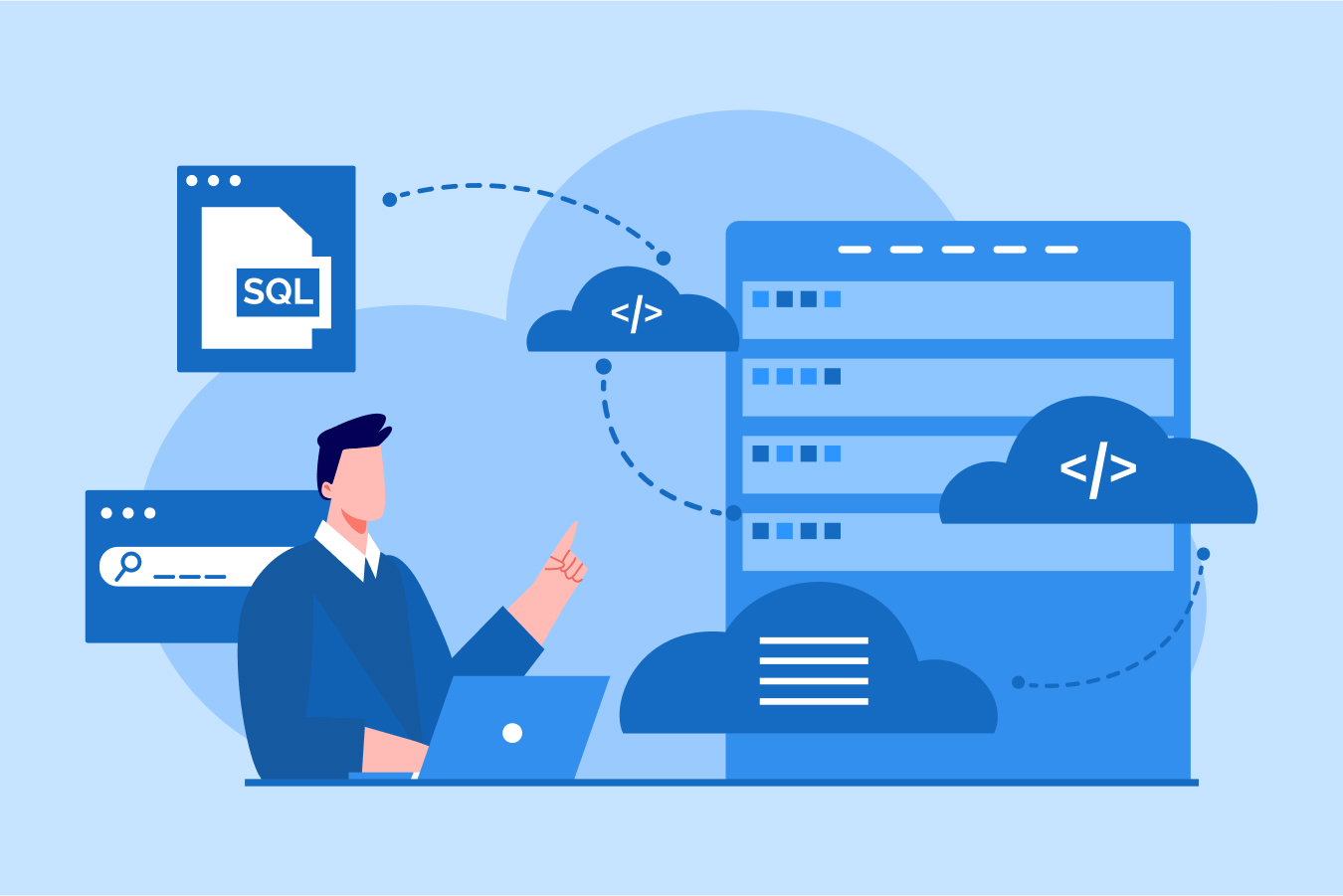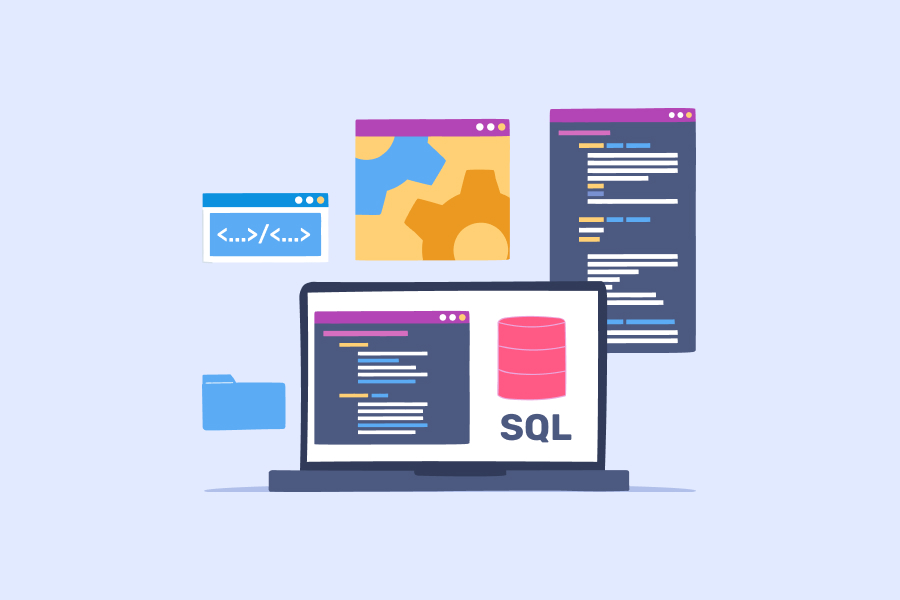Applications of DBMS: A Comprehensive Guide
A 2020 report by MicroStrategy reveals that an overwhelming majority (94%) of companies consider data and analytics indispensable for business growth and digital transformation. The hospitality, telecoms, and retail industries are leading the field in terms of investments made in data analytics. Many other sectors also plan on augmenting their spending habits in this area going forward.
The applications of DBMS have proven useful for many industries and organizations. In this blog, we will explain the application of DBMS, its uses, and the different types of database application systems.
What is DBMS?
A database management system (DBMS) is a computer software application that interacts with the user, other applications, and the database itself to store and analyze data. It is used to store, manage, modify, and extract information from a database.
A DBMS generally manipulates the data itself and the relationships between the data. It may also provide a facility for backup and the benefits of data integrity enforcement, replication, security, and data access control. DBMS applications can be used to store and manage data from a variety of sources, such as web and mobile applications, as well as from traditional sources such as relational databases.
Business analysis skills are essential for understanding the functionalities of a database management system application. To learn data management with DBMS applications effectively, consider taking a business analyst course with placement.
Applications of DBMS
In today’s world, databases are an important tool for businesses of any size. They help store and manage data effectively. They also provide a secure, reliable, and efficient method for keeping vital records accurate and up-to-date. There is no limit to the potential uses of database technology. Given below are various database system applications in DBMS.
1. Airline Reservation System
An airline reservation system is a database management system that stores, organizes, and maintains the data associated with air travel. It contains passenger information, such as names, check-in dates and times, departure times, and flight schedules. It also logs the number of flights per day over certain distances from origin to destination, as well as reservation details and pilot information.
By tracking all this data in an organized way within its secure structure, the airline can ensure accurate bookings are made while keeping customer information safe at all times.
2. Human Resource Data Base
For any organization with numerous employees, maintaining and securely storing data is essential. A human resources database can do this by collecting information about employees, such as their name, start date, job title, salary details, tax particulars, and what benefit packages they are eligible for. This creates an organized system that allows easy access to the necessary information when needed.
3. Banking Data Base
Banks rely heavily on databases to manage the huge amount of customer data. This data includes customer information, financial transactions, asset details, balance sheets, credit and debit card records, as well as loans and fixed deposits.
A database enables them to organize all this information in a structured way for easy access when needed while also safeguarding it from unauthorized viewing or misuse. With its help, banks can effectively store and manipulate large amounts of data so that their clients are provided with quality services promptly without any errors or delays.
4. Libraries
A library has a huge collection of books. Therefore, storing data may sometimes get confusing. They require a database system to optimize their storage management system in order to efficiently and properly store information.
Through the help of a database storage system, libraries have the ability to precisely store and access books with ease. The DBMS stores details, such as title, release date, author name(s), availability status (checked out/available), borrower’s identity, and due-back dates.
5. Medical Record
Medical data collection is a critical component of the healthcare industry. It is a type of application of DBMS that makes it essential to use databases for storing information. This may include anything from patient profiles and medical histories to medication details, practitioner credentials, appointment logs, and discharge records.
Furthermore, payment processes like invoices can also be included in such systems. Physicians can greatly benefit from having an organized database management system that allows them to keep better tabs on their patient’s progress over time.
6. Educational Institutions
It is undeniable that databases have an abundance of applications, particularly for universities. These institutions maintain vast quantities of data in the form of student information, teacher details, non-teaching staff records, course outlines, and grades, to name a few examples.
Databases provide secure storage options where all this information can be kept safe as it may need to be retrieved long after its original input date. Therefore, the need for maintaining up-to-date records remains high on any educational institution’s agenda.
7. Manufacturing Industries
In the manufacturing industry, it is essential to leverage a database to manage plenty of data related to supply chain management. This includes storing product details, customer information, order particulars, and purchase records. It also includes worker specifics, payment information, and invoice details.
Having an effective system in place enables companies dedicated to producing and supplying products on a daily basis to run more efficiently.
8. Media Sites and Applications
In the modern age, it’s almost impossible to imagine life without a smartphone or social media networks. By connecting with friends and relatives near and far, these networks facilitate meaningful connections like no other prior technology could have done before them.
With millions upon millions of accounts in existence, there is an equivalent amount of data needing storage. This is where databases come into play, as they store valuable information such as user details, images uploaded or shared by users, and chat histories, among other things.
9. Human Resource Administration
Any company that employs a large number of people will want to ensure their data is correctly managed and securely stored. For this purpose, they might use a human resources database, which provides storage for details, such as employee name, date employed, job title or role, salary information, tax information, benefits and perks received, etc. This allows organizations easy access to particular pieces of important personnel-related data when needed.
10. Broadcasting
Broadcasting is the dissemination of video and audio content to a wide range of people via television, radio, or other mediums. As broadcasting records large amounts of data, such as subscriber details, recordings from live events, and event timetables, it becomes essential that this information should be stored in an easily maintainable database structure.
11. Reservation System for Railways
Through the use of a database management system, train stations can accurately and easily record details of passengers. Data such as maintaining the record or information of ticket appointments, and status about the arrival of trains, can be easily stored and accessed. Additionally, passengers are informed if trains are running late through a DBMS.
12. Scientific Research Database
Researchers can efficiently save projects and scientific findings by using DBMS. With the use of DBMS, another researcher can pick up a project that was halted instead of beginning from scratch when it cannot be completed due to unforeseen reasons. Scientists can effectively preserve their discoveries and results.
Also read: What is RDBMS?
Benefits of Using DBMS Applications
Below are the advantages of using DBMS applications.
1. Improved Efficiency
Businesses can significantly benefit from taking a proactive approach to improving their processes. By collecting and analyzing data related to areas, such as sales, order processing, and customer service, companies can identify bottlenecks or inefficient practices that represent potential opportunities for improvement.
Companies that are able to optimize existing business processes often experience increased efficiency, cost savings, and improved customer satisfaction rates, all of which lead directly to growth in revenue.
2. Storage System
Database Management Systems (DBMS) applications provide an efficient storage system for large amounts of data. The data is stored in an organized structure that allows users to easily access, modify, and update the information. Businesses make use of DBMS applications to store data. For example, they use storage systems to store their clients’ sensitive information, like credit card details or postal addresses, while safeguarding the data against any fraudulent activity at the same time.
3. Provide Insight into Consumers Behavior
DBMS application helps businesses gain insight into their customer behavior. By collecting and organizing customer information, such as contact details like emails and phone numbers or purchase history, companies are able to gain insights into customers’ preferences and buying behaviors. This data allows organizations to target specific audiences with customized content that meets individual needs.
4. Encryption of Data
DBMS application allows for the implementation of encryption technology, user access control measures, and other methods such as redaction to remove any personally identifiable data. Encryption is used to protect data by scrambling it with a unique digital key. This key is used to decrypt the data so only authorized individuals can access and view the data.
Compare DBMS Vs RDBMS and know which is better.
Conclusion
Applications of DBMS are important tools for every organization to utilize; therefore, when selecting a database for your application, it’s important to consider the size and complexity of the application. The type of data being stored should also be taken into account. It may help to look at different reviews from current users who have used a certain software before making any decisions. Lastly, make sure that whatever option is chosen has capabilities such as backup and restore functions so that all changes will be tracked over time.
If you are curious about DBMS and want to become a successful business analyst, read our blog on the roles and responsibilities of a business analyst to understand the skills required for this position.







